This is what a philanthropist looks like featuring Shonda Rhimes and Darren Walker
Transcript
[This is what a philanthropist looks like. Darren Walker, president, Ford Foundation. An African American man wearing glasses and a light blue dress shirt with gray pants. Shonda Rhimes, writer, producer and creator of “Grey’s Anatomy” and “Scandal”. A Black woman wearing a black turtleneck and skirt.]
ANNOUNCER: Please welcome Shonda Rhimes and Darren Walker.
[applause]
DARREN WALKER: Shonda Rhimes. You have transformed how we think about media and entertainment, and you have used the narratives of LGBTQ, women, women of color, of course. But you have also made issues that are often invisible, and people who are often marginalized—you put them and their narratives at the center of your work. Talk a little bit about how you, Shonda the creator, sees narrative.
SHONDA RHIMES: I think that storytelling really is a powerful, powerful way to make change. And I don’t know that I saw that at the very beginning as much as I saw a need to tell stories that mattered to me. I was really trying to say something in a way that I wanted to see. I wanted to tell stories I wanted to see. And what I wanted to see was myself at the center of a story. And the moment you do that, you know, you feel seen and you know that other people feel seen. And I started to hear from other people that they felt seen, too. And that expanded, kind of, the stories I started to tell. And you realized the power of that. So, suddenly I was telling LGBTQ stories and hearing from the HRC, and we were just making progress in a way that felt powerful. People felt their stories were being told, and they felt it gave them a way to talk to their families. It felt like we were making progress in a way that I was hearing from senators saying, “Oh, that was interesting.” Suddenly they knew somebody who was coming out because Callie Torres was coming out on television. Narrative should feel personal. I think that’s what makes philanthropy interesting in a lot of ways, is most philanthropy that catches people, that makes people say, I’m going to give money. It’s something that feels personal to them.
DARREN WALKER: So what does Shonda Rhimes, the philanthropist, look like? Because you actually have given a lot of money. You’ve given it quietly. You’ve not sought, you know, any notoriety for your philanthropy.
SHONDA RHIMES: I think that in the beginning I gave because it mattered to me. You know, I gave to Dartmouth College, because they said that they were going to start making college free for kids whose parents made under $100,000 a year, which really moved me, because it would have changed my life when I was going to college. So I started giving money to that and I started giving money to organizations that I cared about. I remember giving to the Smithsonian. And I gave them because I really cared about the idea that we were going to support an African American visual arts gallery. And Lonnie Bunch said to me, “You know, you have to put your name on it and you have to publicize that you did it.” And I felt really uncomfortable doing so. I really didn’t want to. And he said, the act of you putting your name on something and the act of you letting people know that you did this sets an example for other people and makes them understand that it’s okay to give. And that really struck me because it hadn’t ever struck me before, That that’s why you say you’re doing something. It always felt very—I thought like the idea of me saying that I was giving money made it seem like I was trying to make it about me. And he said, “No, you’re setting an example.”
DARREN WALKER: How do you think about the kind of giving you’re going to do in the future?
SHONDA RHIMES: First of all, I’m giving to the arts, which I think is very important. You know, Los Angeles, which is where I spend most of my time, is a cultural desert in a lot of ways, especially if you’re a person of color. I’ve been really trying to find places that provide young artists with places to work and working with a theater company called IAMA, for instance. And one of the things they’ve been doing is, really, finding young playwrights and providing them with a living wage to do the writing that they need to do. Which is huge. And rare. I’ve been working with Debbie Allen Dance Academy, and that has been an amazing situation because, you know, data provides kids with everything from kids show up who can’t afford shoes, and she puts shoes on their feet, and takes kids from ages of 4 to 18 and trains them in every form of dance in a way that doesn’t exist in anywhere in Southern California. When they go tap ballet, African jazz, modern gangnam, like, all of these different forms of dance. And turns out, some really amazing dancers. And it’s a powerful thing.
DARREN WALKER: And so, when you think about the state of America today, and the state of the community, the African American community, and the impact you want to have, how do you frame that? How do you think about that?
SHONDA RHIMES: For me, I really want to spend my time making sure that, you know, arts is protected for young people, because I feel like having a creative place to put yourself and to put out into the world what’s going on, is important because when you put the narrative out there, you can change how people feel about things. So for me, making sure that’s available for people is important. Education is hugely important. And for me to be able to fund opportunities for people to get educated is everything. And just making space is important. Making sure that there are spaces for people to go and be creative are important. I grew up in a family where the arts were just a given. You know, I played the oboe for 17 years. I know. I know.
DARREN WALKER: Shonda, you played the oboe?
SHONDA RHIMES: I played the oboe. I know. I don’t have an armature anymore, but I played a mean oboe. I was good. I was good. Yes, but mostly I read and I wrote. That was who I was. It was really that I was a shy kid and that was important to me. What I thought was interesting for me, like, when I look back on it now, yes, it was a refuge when I was younger. When I got to college, the fact that I was so creative and then I could write like that, was an equalizer. It became a social equalizer in a way that, like, nothing else could.
DARREN WALKER: So Dartmouth College, you arrived.
SHONDA RHIMES: I arrived, and I had a talent that nobody else had. And it became an equalizer. Like, other people’s families came from this. Other people had that. Other people dress like this. I had the same five outfits, you know, but I could do something that none of them could. And it was an equalizer in a way that was very interesting. When I got to Hollywood and it was me in a room full of, like, lots of guys who all look the same named Chad, it was an equalizer.
DARREN WALKER: And because your writing was just so powerful that Chad had to listen to you.
SHONDA RHIMES: Yeah, it just provided me with something that made me as, you know, the thing that got people in the door, simply because of who they were, you know, it got them in the door because of who they were. It got me in the door. My writing got me in the door, when it generally, like, who I was, was never going to get me in the door. So to me, it was a very powerful equalizer. I didn’t know anybody. Nobody was going to let me in based on like, oh, she looks like us. And that’s the color of my skin. Being a woman. Hollywood was just not that place. It was an equalizer because nobody’s going to deny your talent.
DARREN WALKER: So, in wrapping here, I would love for you to talk about: what’s your call to action? What do you say to America, to an audience of philanthropists that you hope will motivate and mobilize us to build a more just and fair world?
SHONDA RHIMES: Wow. So there’s a lot there. I think that there’s a couple of things. One, I think that in this room, you know, we’re all preaching to the choir of each other, which is lovely. Next time something like this happens, I feel like every person in this room should drag along with them somebody who doesn’t agree with you or who doesn’t necessarily think fully the same way you do about philanthropy. Maybe who gives differently, who has a different agenda about any of this. Just to say, come, listen, because maybe, I feel like their minds would have been changed by some of the most amazing things that they heard here today. One. Two. I think that a lot of the things that we all try to do is to, like, rebuild the wheel. We all try to rebuild things, as opposed to finding amazing organizations, big or small, and uplifting those. One of the things that I find very inspiring about a lot of the things I’ve learned about giving, from you, from a lot of the people I’ve worked with, is you don’t go out and start your own organization. You go out and find an organization where people who know what they’re doing and have been working with their, you know, boots to the ground, sleeves rolled up, for years and years. You find them and you put your money in them and you support them. And you let them grow. You give them the opportunity to grow. And you put your influential spotlight on them, so that they can really do what they need to do. Versus saying like, oh, look at me, I’m going to build an organization and create something. I don’t need to create something. I’m a writer. I don’t know what I’m doing, but other people do. And at the very least, I know what it looks like when something’s working and I can put my money there.
DARREN WALKER: Wow. Well, Shonda Rhimes, you make us all hopeful, because you have demonstrated the power of creativity, of narrative, of storytelling, to help lift up voices, and people who, in the narrative arc of this country, have often been left out and left behind. And you have made America better.
SHONDA RHIMES: Well.
DARREN WALKER: We are all better because of Shonda Rhimes. Please join me in thanking
Shonda Rhimes.
[applause]
[New gospel of wealth. What does #GenerosityToJustice look like to you? Ford Foundation dot org forward slash new gospel.]
Accessibility Statement
- All videos produced by the Ford Foundation since 2020 include captions and downloadable transcripts. For videos where visuals require additional understanding, we offer audio-described versions.
- We are continuing to make videos produced prior to 2020 accessible.
- Videos from third-party sources (those not produced by the Ford Foundation) may not have captions, accessible transcripts, or audio descriptions.
- To improve accessibility beyond our site, we’ve created a free video accessibility WordPress plug-in.
Shonda Rhimes, writer, producer, author, and founder of Shondaland, on using culture to create change and the importance of representation.
“One of the things I’ve learned from giving is that you don’t go out and start your own organization. You find organizations that know what they’re doing, that have been working with their boots to the ground and sleeves rolled up for years and years, and you put your money behind them. You give them the opportunity to grow.”
– Shonda Rhimes
Learn more about New Gospel of Wealth
Other videos in this series
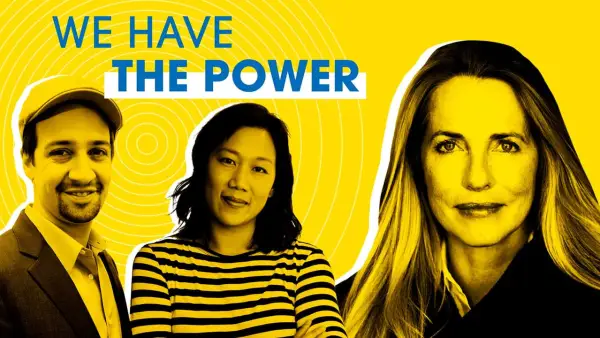
Let’s rethink giving
How can we reimagine philanthropy so that we create a future where there is justice and dignity for all? What are the root causes of the issues and how do we encourage the participation of many and not just a few?
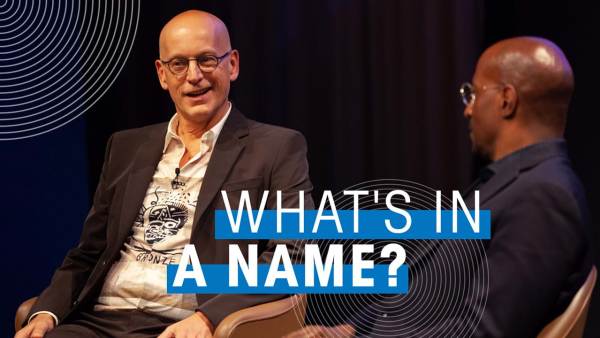
The power of a name featuring Jon Stryker and Van Jones
As a philanthropist, Jon Stryker, president of the Arcus Foundation, believes the act of naming gives power and influence to the work that is supported through his gifts. His philanthropy supports those on the frontlines of justice, providing resources and power to those who need it most.
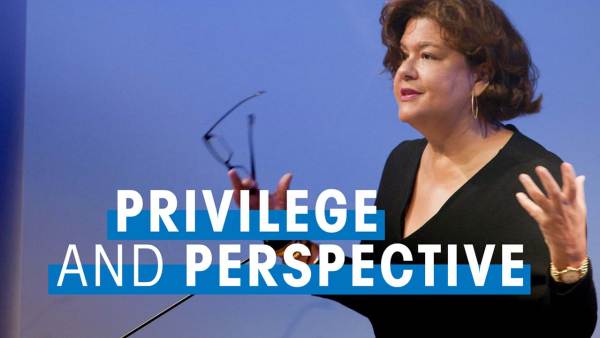
The privilege of perspective featuring Elizabeth Alexander
Elizabeth Alexander, president of the Andrew W. Mellon Foundation, on art, activism, and acknowledging adversity.
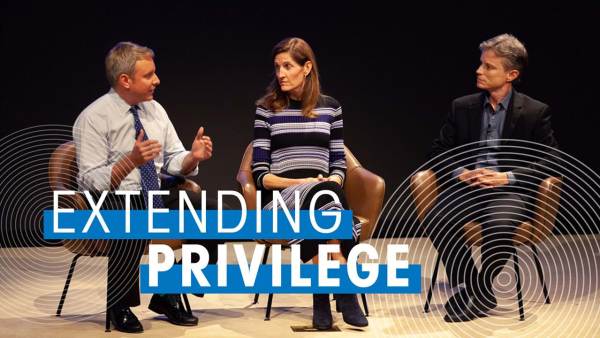
Extending privilege featuring Valerie Rockefeller and Henry Ford III
Henry Ford III, trustee of the Ford Foundation, and Valerie Rockefeller, chair of the Rockefeller Brothers Fund, discuss transforming philanthropy for the 21st century. The families have seen the value of impact investing and believe in partnerships to increase the difference that can be made.
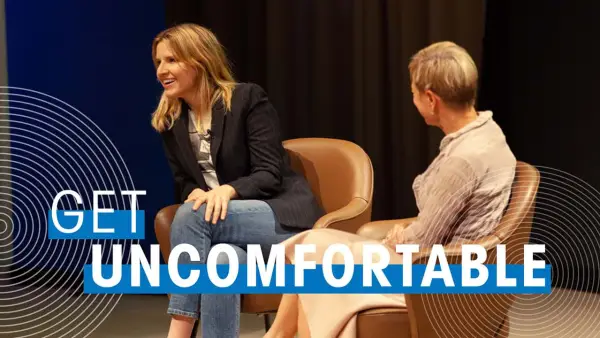
Getting proximate featuring Tara Westover and Hilary Pennington
Tara Westover, author of “Educated,” sees a disconnect between the rural and urban parts of the United States. She believes philanthropists need to be more proximate to the issues they care about, and that spending time with people who aren’t like you is key to disrupting inequality.
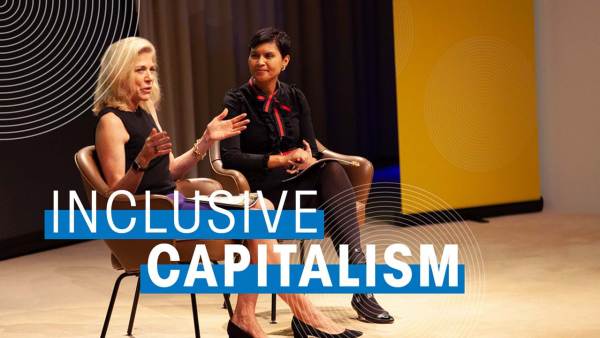
Can capitalism ever really be inclusive? featuring Lynn Forester de Rothschild and Stephanie Mehta
The top 1 percent of the United States controls 42 percent of the national wealth. Lynn Forester de Rothschild, founder of the Center for Inclusive Capitalism, explains that reimagining the economy and making it a sustainable, inclusive system that leads to strong economic growth requires reform.
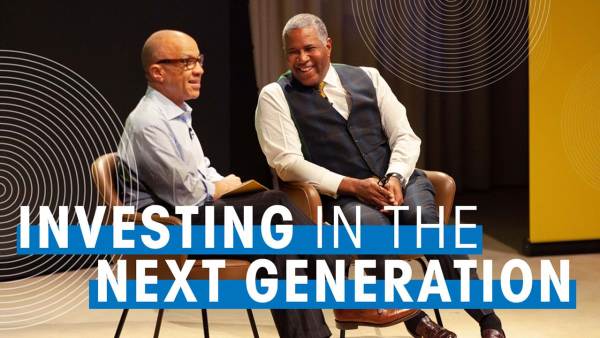
Catalyzing the potential of our time featuring Robert Smith and Darren Walker
Through philanthropy, Robert Smith, CEO of Vista Equity Partners, has alleviated the burden of student debt for a graduating class. He says private philanthropy can help address public policy challenges, such as student loan debt, and is a disruptive opportunity that liberates people to contribute to society in positive ways.
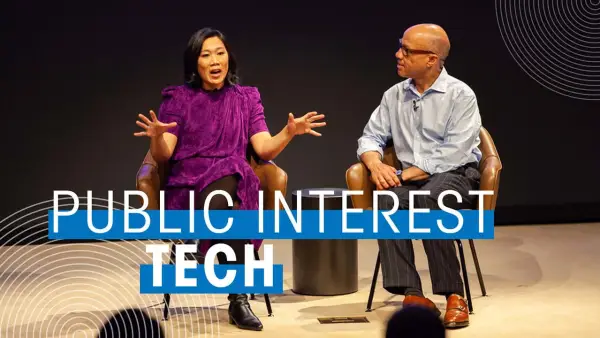
Tech funders changing philanthropy featuring Priscilla Chan & Darren Walker
The top 1 percent of the United States controls 42 percent of the national wealth. Lynn Forester de Rothschild, founder of the Center for Inclusive Capitalism, explains that reimagining the economy and making it a sustainable, inclusive system that leads to strong economic growth requires reform.
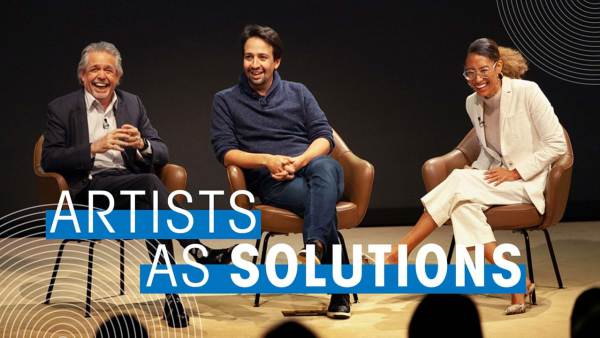
Why artists shouldn’t stay in their lane featuring Lin-Manuel Miranda, Luis Miranda Jr. and Elaine Welteroth
Composer and actor Lin-Manuel Miranda believes all art is political. He and his father, Luis A. Miranda Jr. of the MirRam Group, see the value philanthropy has to empower communities that may have been neglected, and allow them to share their stories through the arts, like Puerto Rico did after…
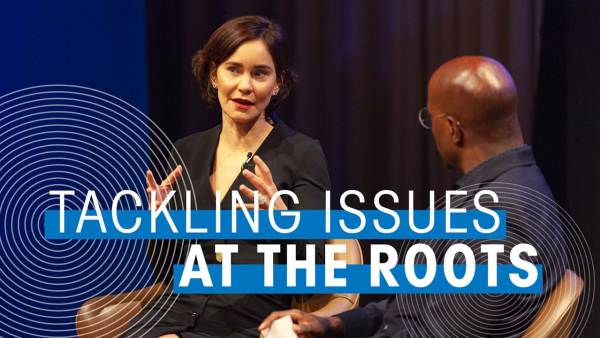
Good philanthropy needs government featuring Laura Arnold and Van Jones
Laura Arnold, co-chair of Arnold Ventures, believes policy change is the lever that will lead to sustainable change. She says we need to attack the systems that are creating the injustices we see, like criminal justice. Philanthropy can create better alternatives that governments can adopt.
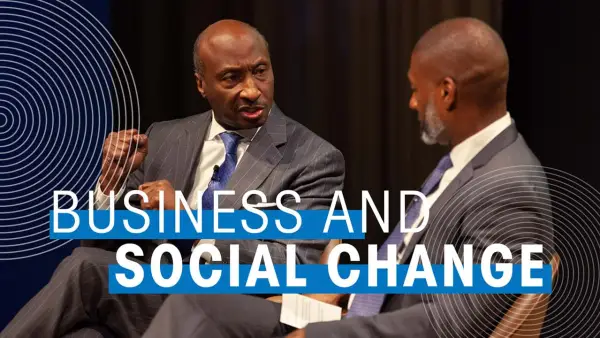
The business of justice featuring Kenneth Frazier and Charles Blow
Kenneth Frazier, CEO of Merck and Co, believes one of the greatest injustices in our society is the health disparities experienced by women of color. A zip code is more likely to determine health outcomes than genetic code. Frazier uses philanthropy to address mortality rate and wants to see more…
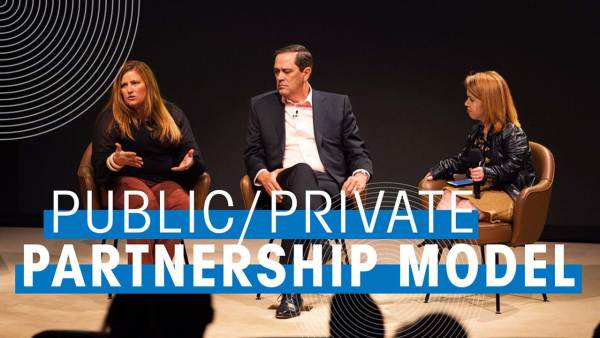
Public-private partnership: A new model for lasting impact featuring Jennifer Loving and Chuck Robbins
Jennifer Loving, CEO of Destination: Home, says a public-private partnership, like the one between her nonprofit and Cisco, headed by Chuck Robbins, can help create a model for the future of philanthropy, and tools like social bonds can help address some of the biggest crises of our time.
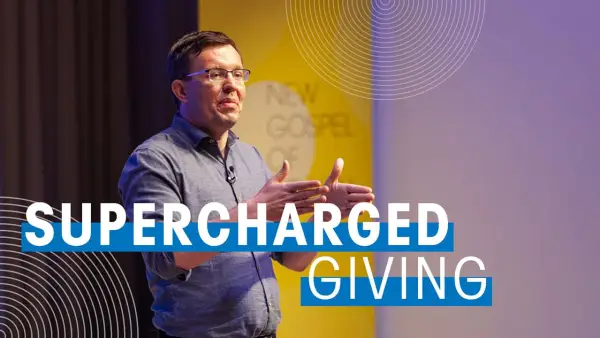
The new power of philanthropy featuring Henry Timms
CEO of Lincoln Center Henry Timms asks how philanthropy can supercharge civic engagement. Timms, who started Giving Tuesday, says trust-based philanthropy needs to shift from generosity to justice, driving more participation from more people, and encouraging meaningful ways to participate and collaborate.
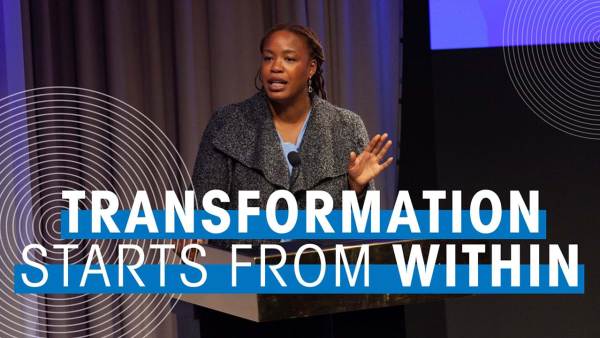
Transforming organizations from the inside featuring Heather McGhee
Heather McGhee, distinguished senior fellow at Demos, shares her experience of working to make the Demos think tank more diverse and led by people of color. Institutional racism, however slight, drives inequality, she says, so transformation needs to be a must-have and not a nice-to-have.
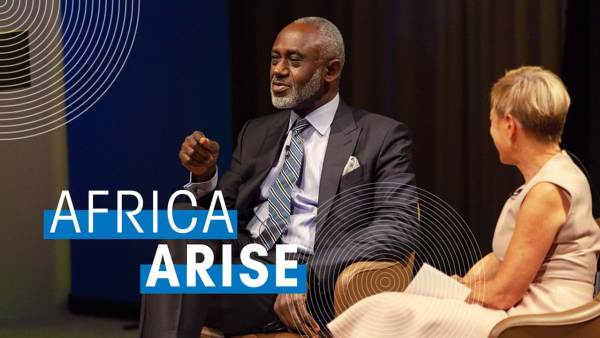
Africa, your time is now featuring Gbenga Oyebode and Hilary Pennington
Ford Foundation trustee Gbenga Oyebode has seen the value of impact investing on the African continent. He believes philanthropy should not just be giving, but investing with a social impact and an economic return. Giving is inherently part of African culture, but needs to be more strategic and collaborative.
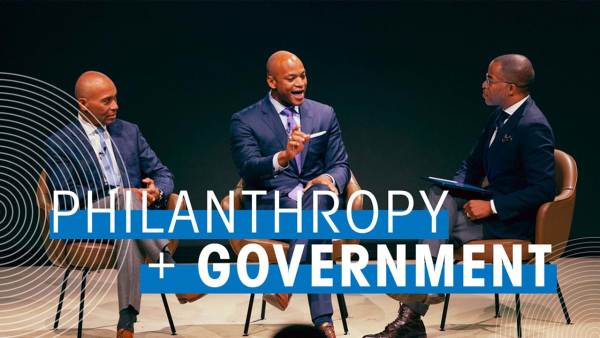
Why good government needs philanthropy featuring Deval Patrick and Wes Moore with Jonathan Capehart
Wes Moore, CEO of Robin Hood, and Deval Patrick, managing director of Bain Capital, see philanthropy working hand-in-hand with government in the fight for equality. Philanthropy can often provide the initial capital needed while government can take over and scale the solution.
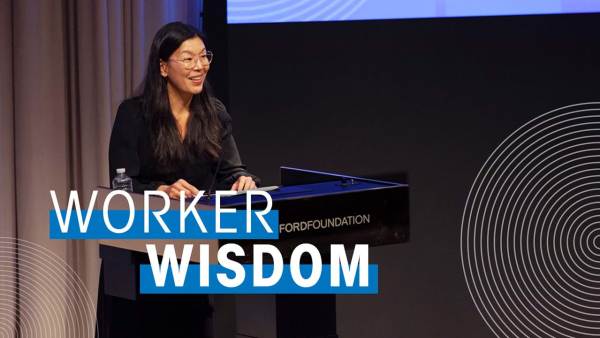
Bringing hidden labor to light featuring Ai-Jen Poo
Ai-jen Poo, executive director of the National Domestic Workers Alliance, says the sector of caregivers and domestic workers continues to grow. Building a future of work that works for all is centered on justice-based philanthropy and not a generosity model.
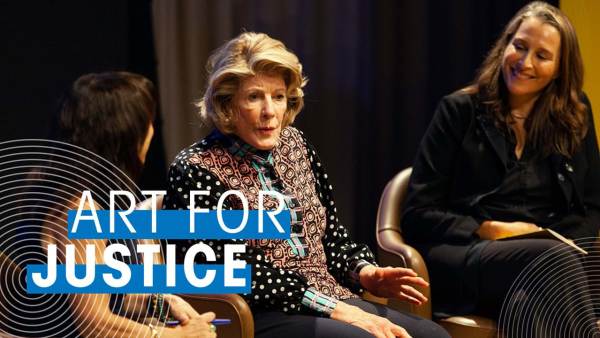
Art for Justice featuring Agnes Gund and Catherine Gund with Maria Hinojosa
The Art for Justice fund was created to help end mass incarceration. Founder Agnes Gund says philanthropy is about addressing issues like this. Catherine Gund believes art has an important part to play in the fight for racial justice and can help change the policies that led to mass incarceration.
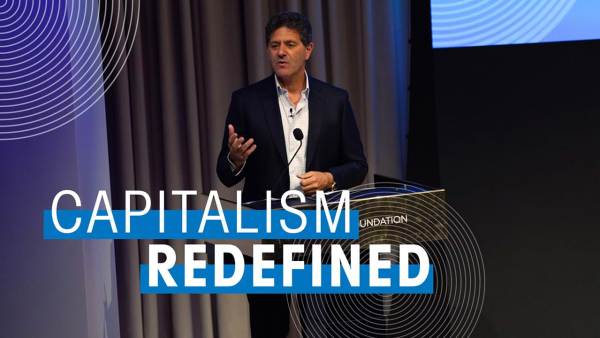
Capitalism redefined featuring Nick Hanauer
Entrepreneur Nick Hanauer asks us to reimagine the economy. He believes we need to change our beliefs about the economy to create a more just, more equitable society for all. By choosing better economic beliefs, we can change society for good.
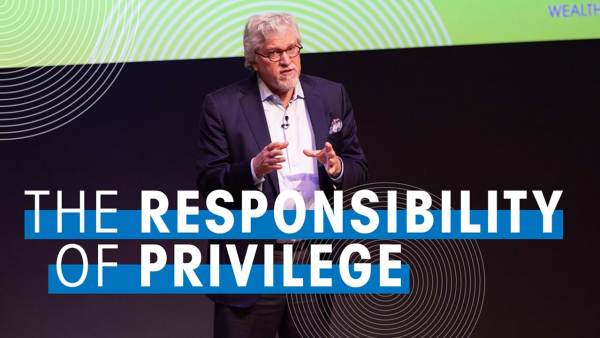
On using power and privilege for change featuring Jeff Raikes
Jeff Raikes, co-founder of the Raikes Foundation, says dismantling racism requires philanthropy to ditch its colorblind approach. People in power need to acknowledge that privilege is invisible to those who possess it. Privilege and power need to be transformed into a force for changing our society for the better.